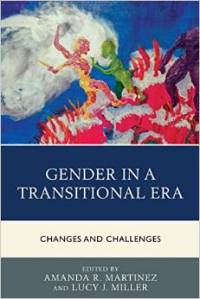 A Post from OSCLG Board Member Leland Spencer about his work linking themes in narratives of religion and sexuality
A Post from OSCLG Board Member Leland Spencer about his work linking themes in narratives of religion and sexuality
In 1993, Orthodox Rabbi Steven Greenberg, writing under a pseudonym, acknowledged in a magazine article that he identified as gay–and intended to remain an Orthodox rabbi. He published the book Wrestling with God and Men in 2004, revealing his real name and offering an extended explanation of his coming out as well as a description of how he understands human sexuality as a rabbi. 
How are we to make sense of Greenberg’s story?
At first glance, we might be surprised to hear a religious leader from a conservative religious tradition come out with the intention of staying in his religious tradition and his job. But what if something about the coming out story seems familiar to religious audiences–even those less than likely to support what we commonly think of as “gay rights”? This may well be the case, as Greenberg’s story fits a pattern familiar to audiences in the Jewish tradition.
For example, the story of Joseph and his brothers in the Hebrew Bible includes three distinct stages: transgression (the brothers sin by selling Joseph into slavery), repentance (years later, Joseph reveals his identity to his brothers when they come to Egypt during the famine; he forgives his brothers), and salvation (Joseph’s leadership during the famine saves the whole Hebrew people from starvation).
Contemporary coming out stories tend to follow the same format. These stories often talks about time “in the closet” as a time of wandering and confusion. The “sin” in coming out narratives is the secret of dishonesty. The moment of revealing one’s identity is like a confession or a repentance. After coming out, people live more freely and openly, experiencing a kind of salvation from the secrecy of the closet.
In my forthcoming chapter in the collection Gender in a Transitional Era (edited by Amanda Martinez and Lucy Miller), I make  the case that these similarities between the coming out and conversion stories are both good and bad. On the one hand, the audience might be more willing to accept the story because its format is familiar. On the other hand, this also means that the obligation to come out may become an extra burden for religious lesbians and gay men.
the case that these similarities between the coming out and conversion stories are both good and bad. On the one hand, the audience might be more willing to accept the story because its format is familiar. On the other hand, this also means that the obligation to come out may become an extra burden for religious lesbians and gay men.
Rabbi Greenberg discussed coming out as a sacred experience, but that also means the closet is defined as sin. Think of it this way: When’s the last time a religious leader told the straight people in a congregation to come out as straight? That’s the default assumption. So only gay and lesbian people face the expectation to come out–and when they don’t come out soon enough (according to whose schedule?), they risk being accused of dishonesty.